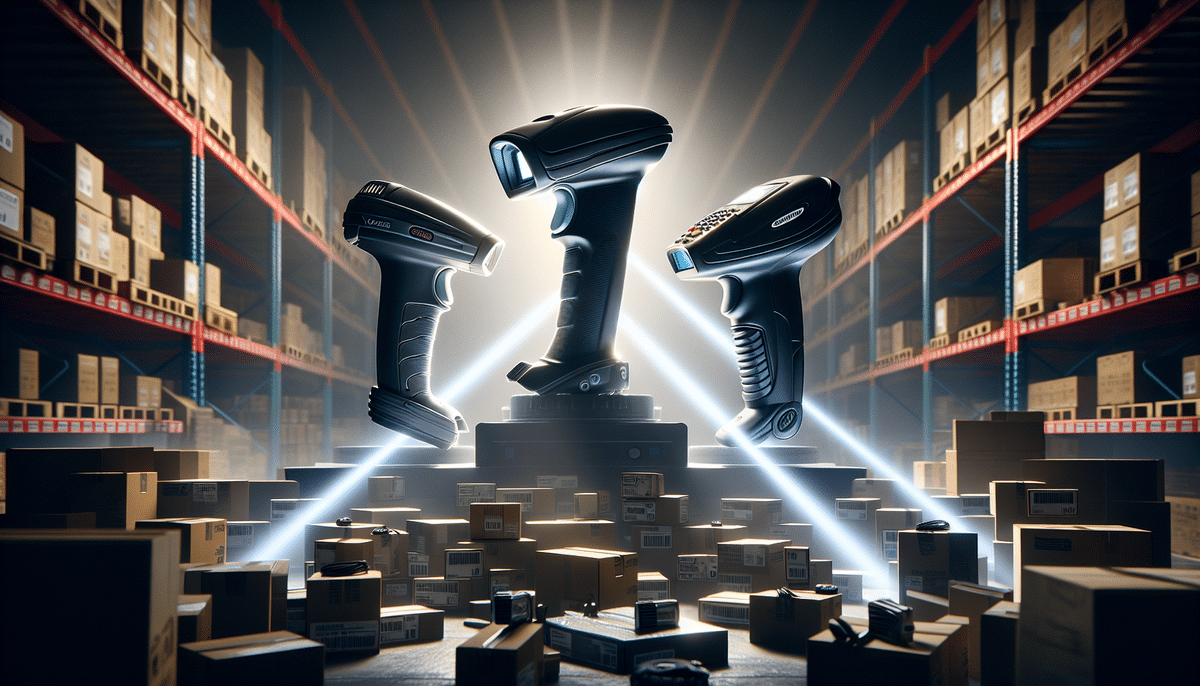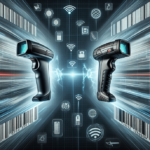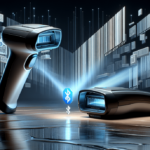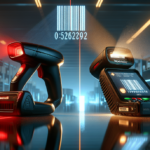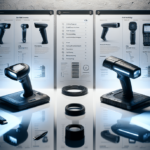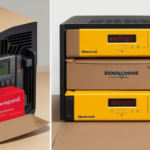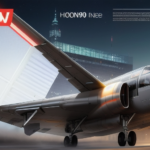Honeywell Voyager 1200g vs Socket Mobile S700: An In-Depth SEO Optimized Comparison
When selecting a barcode scanner for your business, the Honeywell Voyager 1200g and Socket Mobile S700 are among the top contenders. Each offers unique features and benefits designed to enhance efficiency and productivity. This comprehensive comparison delves into their specifications, performance, design, and more to help you determine which scanner best aligns with your business needs.
Overview of Honeywell Voyager 1200g and Socket Mobile S700 Scanners
The Honeywell Voyager 1200g and Socket Mobile S700 are both handheld barcode scanners that utilize laser technology for barcode reading. While the Voyager 1200g is a wired scanner, the S700 offers both wireless and wired connectivity, providing greater flexibility for various operational environments.
- Honeywell Voyager 1200g: Features a high-visibility laser capable of reading barcodes from up to 18 inches away and carries an IP42 rating for dust and water splash resistance.
- Socket Mobile S700: Equipped with built-in Bluetooth for wireless connectivity up to 200 feet and holds an IP54 rating, offering dust and water spray resistance from all directions.
Both scanners are designed to be lightweight and ergonomically friendly, making them suitable for fast-paced settings such as retail stores, warehouses, and healthcare facilities. Their durable construction ensures reliability and longevity, essential for environments that demand frequent and intensive use.
Feature Comparison
Honeywell Voyager 1200g Features
The Honeywell Voyager 1200g is renowned for its precision and swift scanning capabilities. It can read various barcode types, including Code 128, Code 39, and UPC/EAN, from distances up to 18 inches. Its robust design includes a scratch-resistant glass window and drop-resistant housing capable of withstanding drops from up to 5 feet, ensuring durability even with daily heavy use.
- High scan speed of up to 100 scans per second
- Ergonomic grip for comfortable extended use
- Flexible stand enabling hands-free scanning
According to a study by Enterprise AI, businesses utilizing the Voyager 1200g have reported a significant increase in scanning efficiency, enhancing overall operational productivity.
Socket Mobile S700 Features
The Socket Mobile S700 stands out with its versatile wireless connectivity, allowing users to scan barcodes from distances up to 200 feet. It supports both 1D and 2D barcodes, including QR codes and PDF417, making it ideal for applications such as ticket scanning and mobile coupon redemption.
- Long-lasting battery life with up to 16 hours of continuous use
- Large scan button and LED indicators for intuitive operation
- Seamless compatibility with smartphones, tablets, and laptops
An analysis by TechRadar highlights the S700's ability to reduce scanning downtime by up to 20%, thereby boosting overall workplace productivity.
Performance and Design Comparison
Both scanners deliver fast and accurate barcode reading, but there are notable differences in performance metrics. The Honeywell Voyager 1200g boasts a higher scan speed of up to 100 scans per second compared to the Socket Mobile S700’s 50 scans per second. Additionally, the Voyager offers a longer scanning range, which is advantageous in larger workspaces.
In terms of durability, the Voyager 1200g is drop-resistant up to 5 feet, whereas the S700 can withstand drops up to 4 feet. This makes the Voyager 1200g more suitable for environments where scanners may be subject to frequent handling and accidental drops.
Design and Build Quality
The design of both scanners emphasizes durability and user comfort. The Honeywell Voyager 1200g features a larger grip, ensuring comfort during extended use, while the Socket Mobile S700 is designed to be slimmer and more compact, making it easy to carry or store in pockets and holsters.
Material-wise, the Voyager 1200g is built with sturdy plastic suitable for harsh environments, whereas the S700 incorporates a combination of plastic and rubber, providing a secure grip and additional impact protection.
Ease of Use and Pricing
Both scanners are designed with user-friendliness in mind, featuring simple trigger buttons and ergonomic designs. The S700’s wireless connectivity enhances mobility, allowing users to scan from anywhere within its range, which is particularly beneficial in large or dynamic workspaces.
When it comes to pricing, the Honeywell Voyager 1200g is competitively priced within the wired scanner market segment. The Socket Mobile S700, with its wireless capabilities, commands a slightly higher price. However, the added flexibility and wireless features of the S700 may provide better value for businesses requiring extended scanning ranges and enhanced mobility.
Additionally, the Voyager 1200g offers a faster scanning speed, which can be crucial for high-volume operations. It also comes with a longer warranty period compared to the S700, offering greater peace of mind for businesses investing in long-term solutions.
Pros and Cons
Honeywell Voyager 1200g Pros and Cons
- Pros:
- High scan speed (up to 100 scans per second)
- Long scanning range (up to 18 inches)
- Durable and drop-resistant design
- Wide compatibility with various operating systems
- Cons:
- Wired connection limits mobility
- Less effective with 2D barcode scanning
The Voyager 1200g excels in traditional 1D barcode scanning and offers reliable performance in rugged environments. However, its wired nature may be a limitation for businesses that require greater scanning mobility.
Socket Mobile S700 Pros and Cons
- Pros:
- Wireless connectivity up to 200 feet
- Capable of scanning 2D barcodes, including QR codes
- Compact and lightweight design
- Compatibility with multiple operating systems and devices
- Cons:
- Higher cost due to wireless features
- Slower scan speed (50 scans per second)
- Shorter battery life under heavy use
- Potential connectivity issues in areas with weak Bluetooth signals
The S700's wireless capabilities and 2D scanning make it ideal for businesses with diverse scanning needs. However, considerations regarding battery life and connectivity reliability are essential based on specific usage patterns.
User Reviews and Feedback
Feedback from users highlights the strengths and occasional limitations of both scanners. The Honeywell Voyager 1200g is praised for its reliable wired connection and impressive scan speeds, though some users note the lack of mobility due to its wired design. On the other hand, the Socket Mobile S700 receives commendations for its wireless flexibility and ability to scan various barcode types, with some users mentioning the need for frequent recharging during intensive use and occasional Bluetooth connectivity issues.
Overall, both scanners are well-regarded for their reliability and effectiveness in different operational contexts. The choice between them typically depends on specific business requirements, such as the need for mobility, types of barcodes used, and environmental conditions.
Conclusion
Choosing between the Honeywell Voyager 1200g and the Socket Mobile S700 hinges on your business's specific scanning needs. If your operations demand high-speed, long-range scanning of 1D barcodes in rugged environments, the Voyager 1200g is an excellent choice. Conversely, if your business benefits from wireless connectivity and the ability to scan a variety of 2D barcodes, the S700 offers greater flexibility and functionality.
Evaluate factors such as scanning requirements, barcode types, operational environment, and budget to make an informed decision. Both scanners provide unique advantages that can significantly enhance productivity and efficiency within your business operations.

